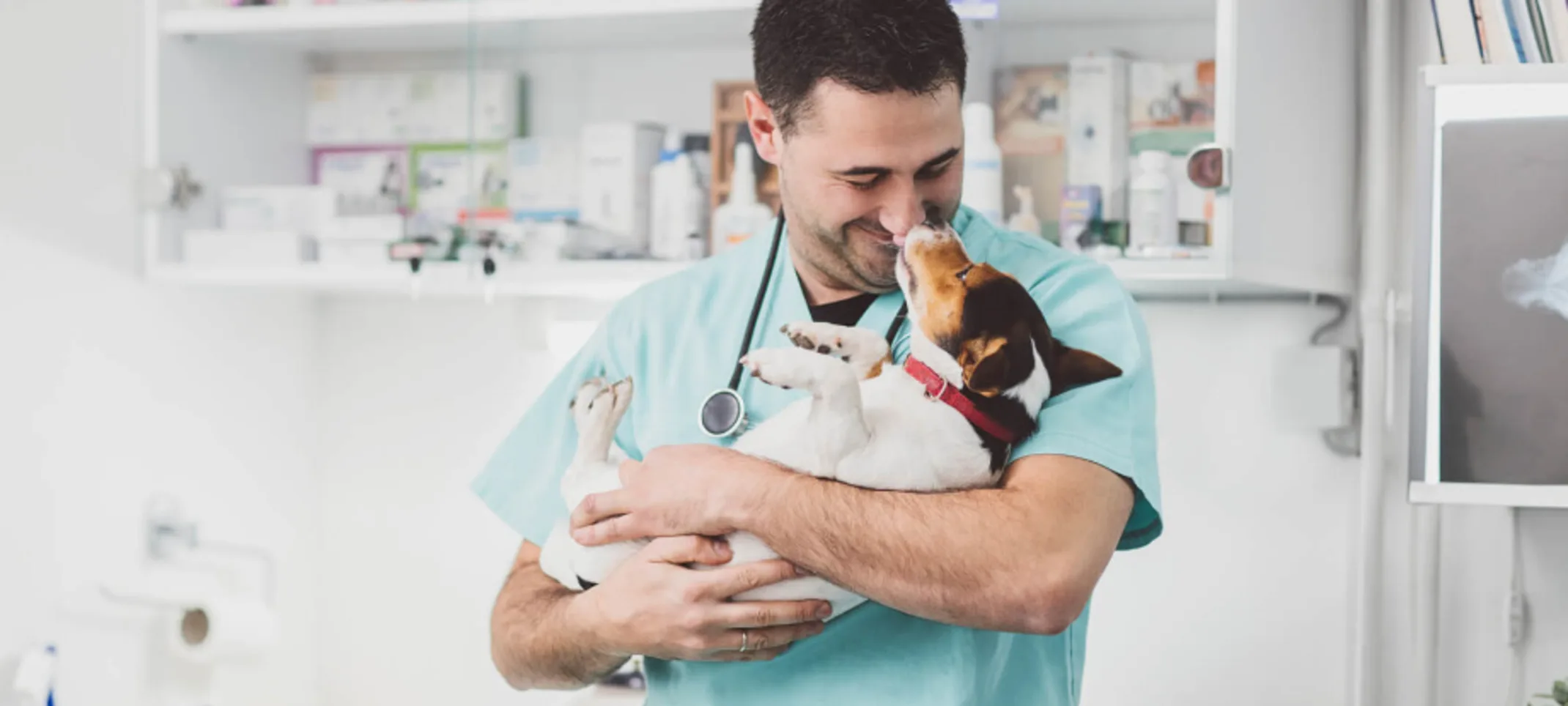Southern Hills Veterinary Hospital
Dermatology
Dermatology is the branch of medicine that deals with the diagnosis and treatment of skin disorders.

TULSA VETERINARY DERMATOLOGY
Caring for Your Pet’s Skin & Coat
Skin conditions are quite possibly the most common reason pet parents bring their pets into our animal clinic. It can be a scary experience to be petting your furry family member and find a mysterious bump or lump, or to see them constantly scratching a mysterious itch. We know their health is a matter of great importance to you, and it is for our animal clinic’s staff as well. At Southern Hills Veterinary Hospital we want to help diagnose the problem and determine the best treatment for your cat or dog.
Overview
Dermatology is the branch of medicine that deals with the diagnosis and treatment of skin disorders. Dermatological conditions are some of the most common problems your pet can experience. They range from hair loss and nail disorders, to cancer of the skin and tumors.
Why should I consider dermatology work-ups for my pet?
Dermatology is the branch of medicine that diagnoses and treats skin disorders. A veterinary dermatologist has a very high level of expertise in diagnosing and treating a wide variety of ailments that affect the skin, hair or coat, ears, nails, hoof, or mouth problem your pet may be experiencing.
Typical problems in animals include acute and chronic ear infections, tumors, masses, atopic dermatitis, autoimmune skin diseases, cancer, cysts, tumors, chronic bacterial and fungal skin diseases, drug reactions of the skin, environmental allergies, food allergies, hair loss disorders, hormonal skin diseases, insect hypersensitivity, nail disorders, parasitic skin diseases, and skin manifestations of systemic diseases.
When should I consider dermatology work-ups for my pet?
If you’re concerned about the quality of life your pet is experiencing, or if a condition or disease has not responded to more general treatment, then it may be time to seek out a veterinary dermatologist. Common signs that something is wrong include: hair loss, redness of skin, scale, and recurring infections. A vet that specializes in dermatology has expertise with diagnosing and treating a wide variety of problems including skin, ear, hair, nail, hoof, and mouth disorders.
How is my pet cared for during dermatology care?
Treating or managing a dermatological problem will vary, but your veterinarian will work with you in developing a treatment plan that is best suited for your pet’s specific health needs.
Itchiness
There can be a variety of causes of your pet’s itchy skin, including pesky fleas or mites. One of the most common reason, however, is due to allergies.
These can be broken down into three main categories:
Environmental: This includes inhalant allergies from pollens, animal dander, house dust mites, and other environmental irritants.
Contact: These allergies derive from anything your pet has come into contact with. This can include their bedding or grass that they’ve rolled around in.
Food or medication: The most common food allergies in cats and dogs develop due to proteins found in dairy products, beef, and wheat. They can also develop allergies from newer medications. Signs of food allergies include constant scratching, dry skin, and/or rashes and hives.
Each case is unique and must be approached differently for optimal treatment. There are a variety of techniques that our veterinarians may recommend to help treat itchy skin. There are many high-quality prescription shampoos, ointments, and lotions that have been known to help.
Another option is changing your pet’s diet. Surprisingly, Iams Kangaroo and Oats has been successful due to the fact that pets are not accustomed to kangaroo and therefore their bodies haven’t developed an allergic response. Omega fatty acid supplements and short-term steroid therapy are other options that may be recommended.
Lumps & Bumps
While the majority of the lumps that we treat at our animal clinic end up being benign, we understand the fear that comes with the unknown. Our veterinarians will diagnose the nature of the mass by collecting cells from the lump and send it to our laboratory so that we can know exactly what it is.
The most common masses we see are skin tags, warts, and cysts, which can be removed immediately with very little pain or stress for your pet.
If the mass ends up being malignant or cancerous, a larger and more complex incision must occur. Following the procedure, we recommend having a pathologist ensure that the cancer has been removed and that the chances of cancer spreading is minimal. Depending on the situation, we may refer you to an oncologist to discuss the appropriate steps to take next.
Contact Southern Hills Veterinary Hospital Today!
No matter what may be causing the itchiness in your pet, or what the nature of their lump or bump may be, you can rest assured that the health and wellness of your pet is our top priority. The entire staff at Southern Hills Veterinary Hospital is dedicated to the animals that we see and will treat them as one of our own.
